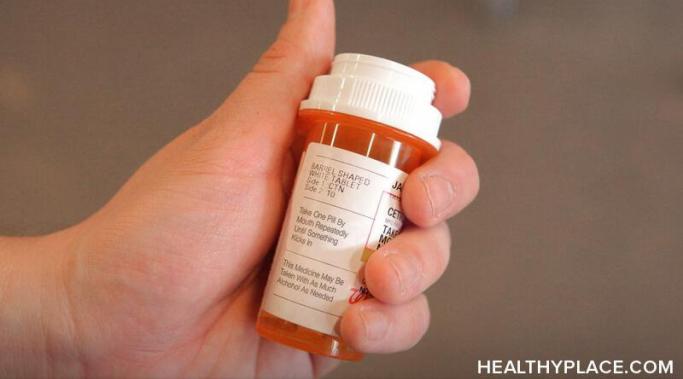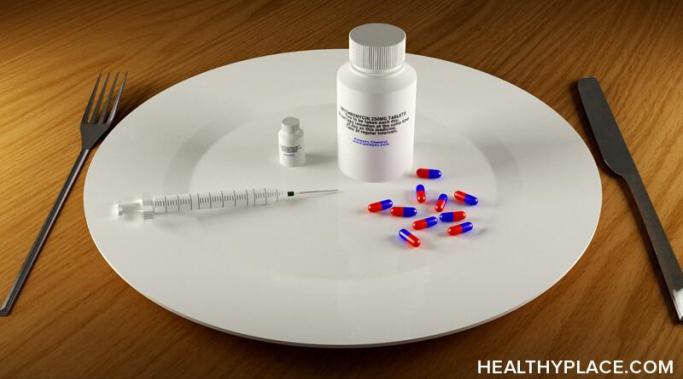Many times during treatment, you may have to consider whether to change your bipolar medication. This is a complicated question and a personal one. The answer varies from person to person. If you're considering changing your bipolar medication, here are some things to think about.
Drug Information
When I started taking medication every day, I was worried that it would make me a drug addict. Some might find this fear weird, but it was definitely a real fear for me. My father was an addict, and I was terrified of turning into one, too. My psychiatrist at the time did nothing to disabuse me of that notion either (he probably never thought it would cross my mind). So, let's look at whether taking medication every day makes you a drug addict and how to deal with that fear.
Antipsychotics are a class of medications that many people don't like to take. In fact, I was terrified of the notion that it was even a possibility once upon a time. But antipsychotics are often used to treat bipolar disorder and some depression, along with illnesses like schizophrenia, with which we classically associate psychosis. But even though antipsychotics are approved for use in those areas — thus proving they do work for some with those illnesses — people still don't like to take antipsychotics. Why don't people like to take antipsychotics? Well, if you're me, it's because you've tried them.
People often wonder how long they should try a bipolar medication before switching it for something else (due to inefficacy). I have taken a look at this question, and the answer may surprise some people. When I think about how some doctors (and patients) look at the question as to how long to try a bipolar medication, I think they often get it wrong.
Going off bipolar medication is a bad idea -- well, it's almost always a bad idea. I know why people want to do it. I would suggest that pretty much everyone on bipolar disorder medication has wanted to go off of it multiple times during treatment. This is completely normal and almost unavoidable. In spite of this strong desire, though, going off bipolar medication is almost always a bad idea.
Medication failure is not bad. Don't get me wrong, I know that it feels really, really bad, but just hear me out on this one: even though it feels terrible, a failing medication is not bad.
Medication noncompliance in bipolar disorder is generally considered a bad thing -- and it generally is -- but can medication noncompliance ever be a good thing? I would say so, in very limited situations. Read on to see why medication noncompliance in bipolar disorder can occasionally be a good thing.
Sometimes it feels as if your body isn’t yours because of bipolar medication. It feels like the medication takes over your very being. It feels like you no longer have a human body but, rather, a collection of drug-related effects. This particularly happens when you’re getting on medications or tapering off medications, but really, bipolar medication can make you feel like your body is not your own at any time.
When you’re changing medications, it becomes very clear how much bipolar medication changes suck. Being on the first one(s) sucks and changing to the next one(s) sucks, too. And people not on medication may not get this. They may not get what it’s like to have to take medication for bipolar and they certainly may not get why bipolar medication changes suck.
I had dental surgery last Thursday and as fun as that was, managing the pain since has been ever more so. It got me to thinking that mixing bipolar and codeine likely isn’t the best idea.









